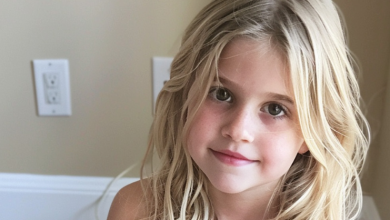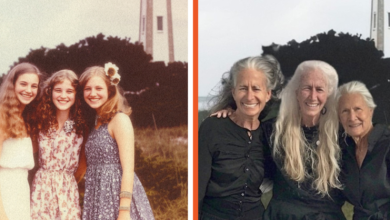My heart dropped. You know that sharp, instant fear that punches you right in the chest? That. I ran through the living room, then the porch, yelling her name. Nothing. Checked every room—closets, under the table, behind the curtains. Still nothing.
I was about thirty minutes into full panic mode—shoes half on, phone in hand ready to call someone—when I spotted the back door cracked open.
It leads to the garden at the back of our house, a small, enclosed area that I had always thought of as safe. But this time, the door was wide enough for a toddler to slip through.
I rushed outside, calling her name again, my voice cracking with every step. “Mila! Mila!” My heart was pounding now, my mind racing with the worst possible scenarios. I scanned the garden, the swing set, the little sandbox we’d set up for her. No sign of her.
I felt like I couldn’t breathe. This was supposed to be the safest place for her. She had been playing in the yard earlier, so how could she have wandered off? Why wasn’t she there now?
Just when I was about to spiral into the panic I could feel closing in on me, I heard something—a soft, almost muffled noise coming from the shed at the far end of the yard. I hesitated for a second, my mind still swirling with fear. I hadn’t thought to check there. I took a deep breath, forcing myself to steady my nerves, and slowly walked towards it.
The noise was louder now. It was a soft giggle.
I pushed the door open and froze.
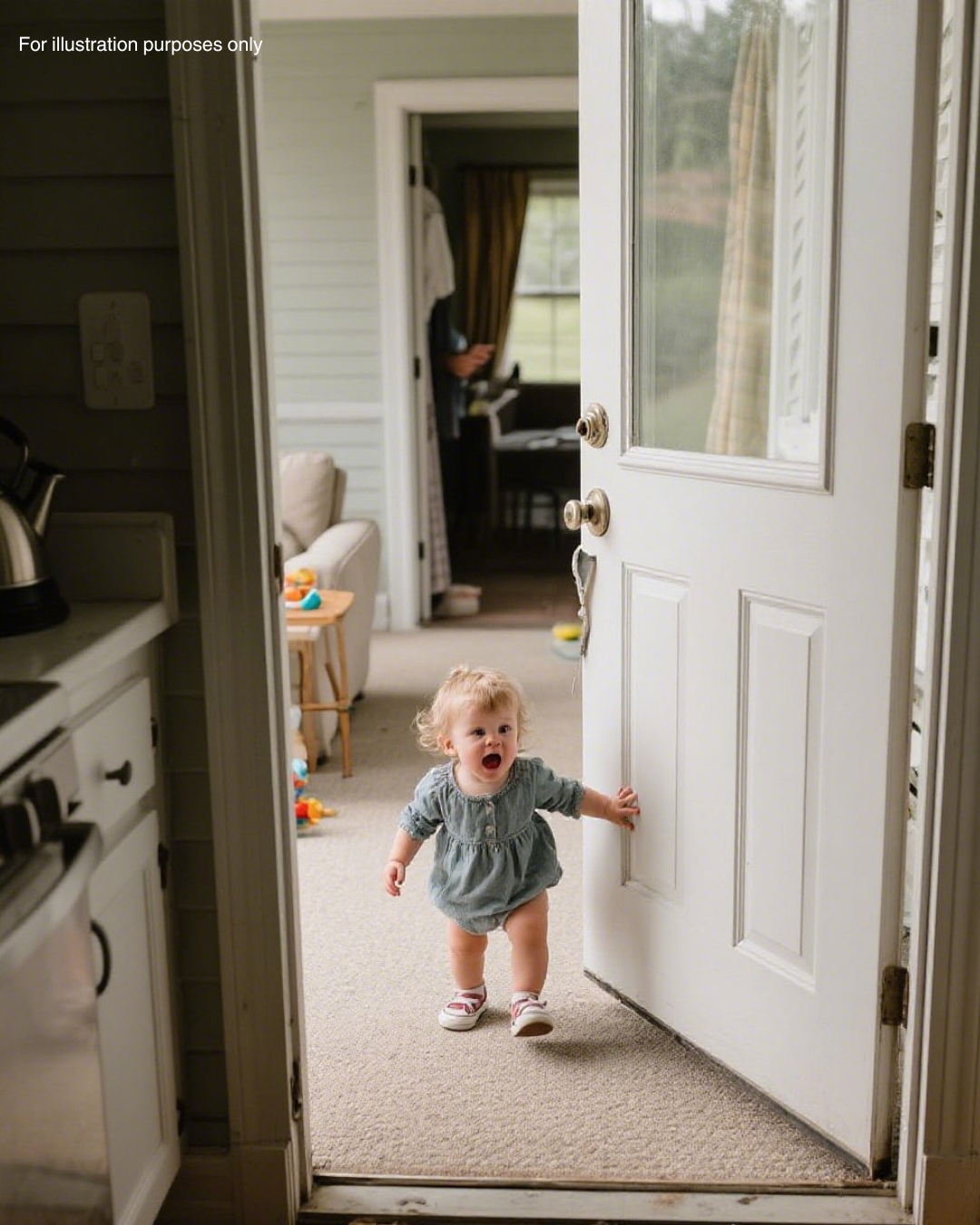
There, sitting inside the shed, was Mila. But she wasn’t alone. She was sitting beside a woman, a stranger, who looked up at me with a friendly, almost too calm smile.
“Hi there,” the woman said. “I found her wandering around and thought she might be looking for someone.”
I blinked, my body trembling, still half in panic mode. “Who are you? How did you—what are you doing with my daughter?”
The woman looked unbothered, as though she hadn’t noticed my obvious distress. “I’m sorry if I scared you. I saw your little one outside, looking lost. She seemed curious, so I brought her here to wait for you. My name’s Carol. I live just a few doors down.”
I felt like I couldn’t think straight. Mila was smiling, happily playing with a toy Carol had given her, completely oblivious to the storm of emotions I was trying to hold back. I couldn’t understand how this had happened. She had just vanished, and this woman—this stranger—had taken her into her shed?
I swallowed hard, forcing my voice to steady. “Why didn’t you just call me? Or, at least, knock on my door?”
Carol seemed to consider the question for a moment before answering. “I figured I’d wait for you to find her yourself. I didn’t want to cause alarm. I’m just trying to be helpful. It’s such a quiet neighborhood, I don’t often see the little ones around. Thought she might be playing hide and seek.”
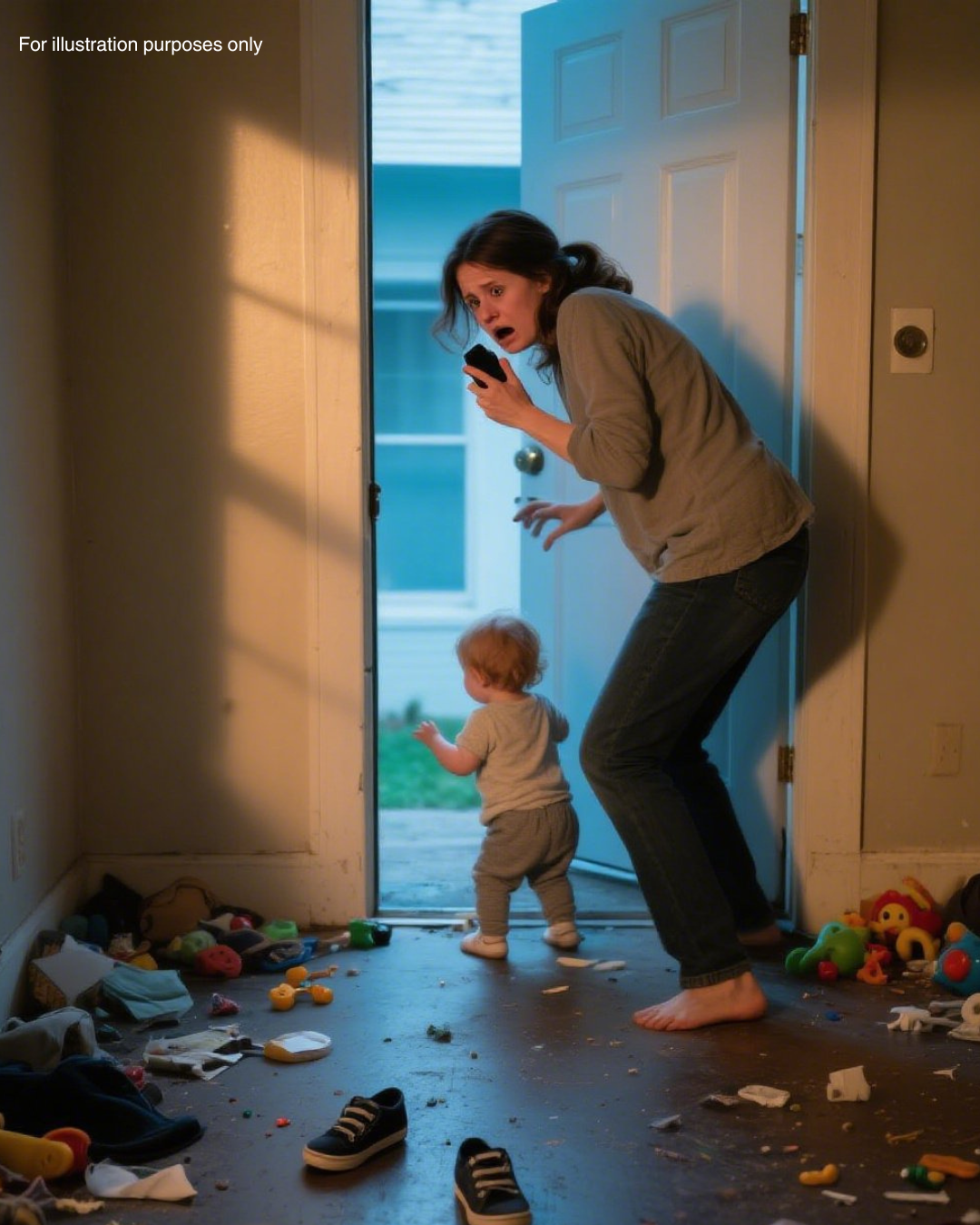
I wasn’t sure whether to feel relieved or completely unsettled. Mila was safe, that was the most important thing. But there was a nagging feeling in the pit of my stomach that wouldn’t go away. Why hadn’t Carol called me immediately? Why had she kept my daughter inside her shed, alone with her, instead of coming to the house?
I gently scooped Mila up, murmuring comfort to her. She snuggled into me, completely at ease, completely unaware of my panic. My eyes never left Carol as I stepped back, still holding Mila close.
“I appreciate you finding her,” I said, trying to keep my voice as neutral as possible. “But I think we’ll take it from here.”
Carol smiled again, almost too smoothly. “Of course. I understand. Take care now.”
As I turned, I caught a glimpse of something in her eyes—a glimmer of something I couldn’t quite put my finger on. But it was gone as quickly as it appeared. Maybe it was just my imagination, fueled by the stress of the moment. But something about that exchange, something about the way she acted, didn’t sit right with me.
The rest of the evening passed in a haze of relief and disbelief. I couldn’t stop thinking about what had happened. I hadn’t seen Carol around before, or at least, not like that. I knew my neighbors well enough to know most of the families living nearby. But I’d never seen her. The thought kept me up that night, tossing and turning, as I tried to make sense of everything.
The next morning, I decided to walk over to Carol’s house. I needed answers, needed to feel certain that Mila was truly safe, and that she hadn’t been placed in harm’s way.
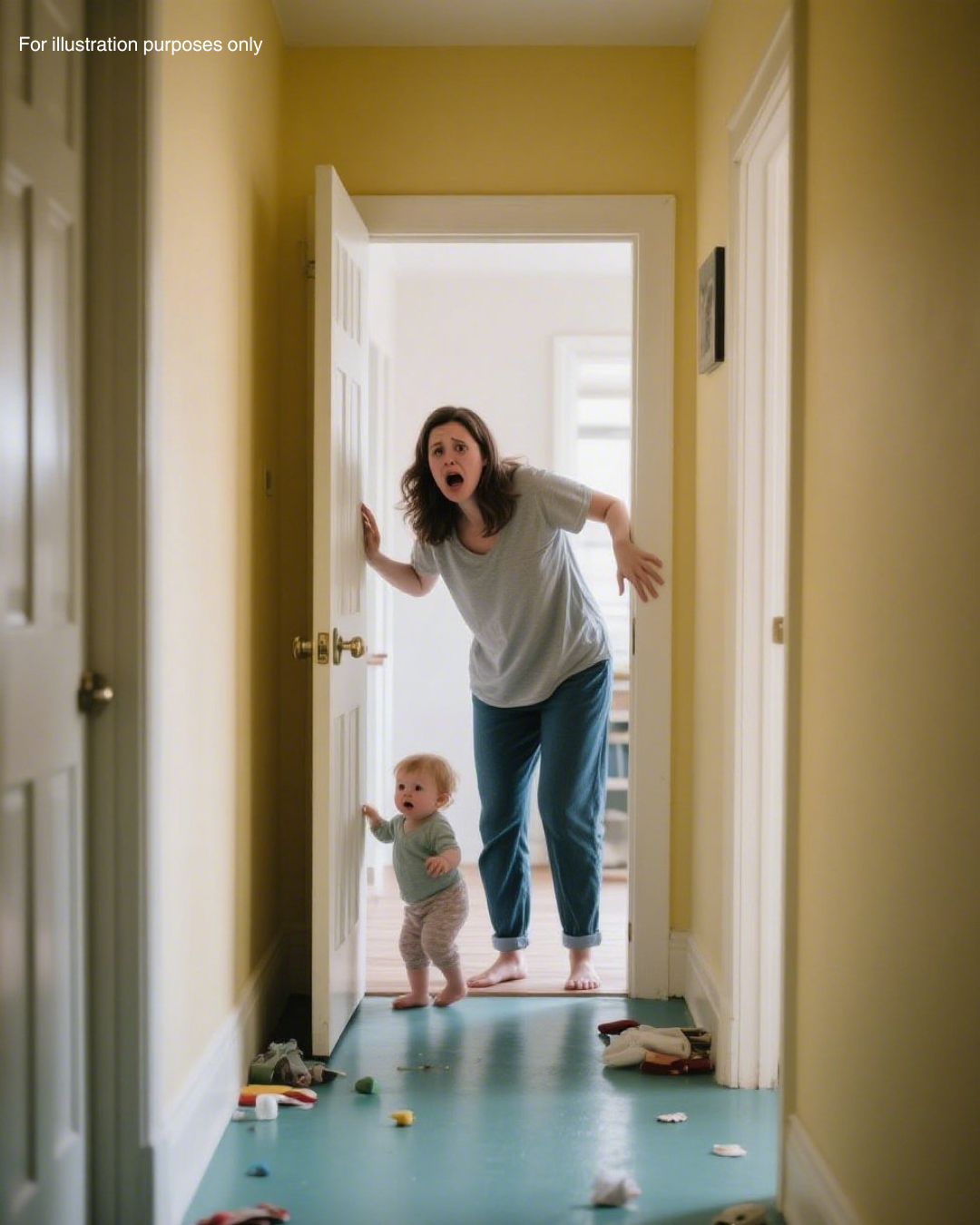
As I walked down the street, I couldn’t shake the uneasy feeling that had settled in my chest. I stopped in front of Carol’s house, a small, neat cottage with a well-kept garden. I knocked on the door, trying to mask the sense of foreboding creeping up my spine.
It took a few moments before the door creaked open, and there she was again, standing in the doorway, looking perfectly calm.
“Oh, it’s you,” she said, her tone soft and friendly. “What can I do for you?”
I took a deep breath. “I just wanted to make sure everything was okay with you and Mila yesterday. I don’t know, it was just a strange situation. I’ve lived here for a while, and I don’t remember seeing you around before.”
Carol’s expression didn’t change, but I could tell she was calculating her next words. “I just moved in last month, actually. I’m still settling in. I didn’t mean to cause any trouble yesterday. I just thought Mila was curious. She’s such a sweet little girl. I thought it was best to keep her safe while I waited for you.”
Something about the way she said that made me uneasy. It was too perfect, too rehearsed. But then, she surprised me.
“Look, I know you’re worried. And I respect that. But you should know, I’m here to help, not cause trouble. I’m not the kind of person who would ever harm a child.” She took a step back, her eyes softening. “But if it makes you feel better, I can give you my contact information. You can check with the neighbors. I’m here to be a good neighbor.”
The sudden offer felt like an olive branch, and I knew in that moment that I had to choose how to respond. I could either walk away, still uneasy and uncertain, or I could make an effort to trust my instincts and understand her side of things. I didn’t want to believe the worst, but I also needed to protect my child.
I thanked her and left her house, walking back home with a decision to make.
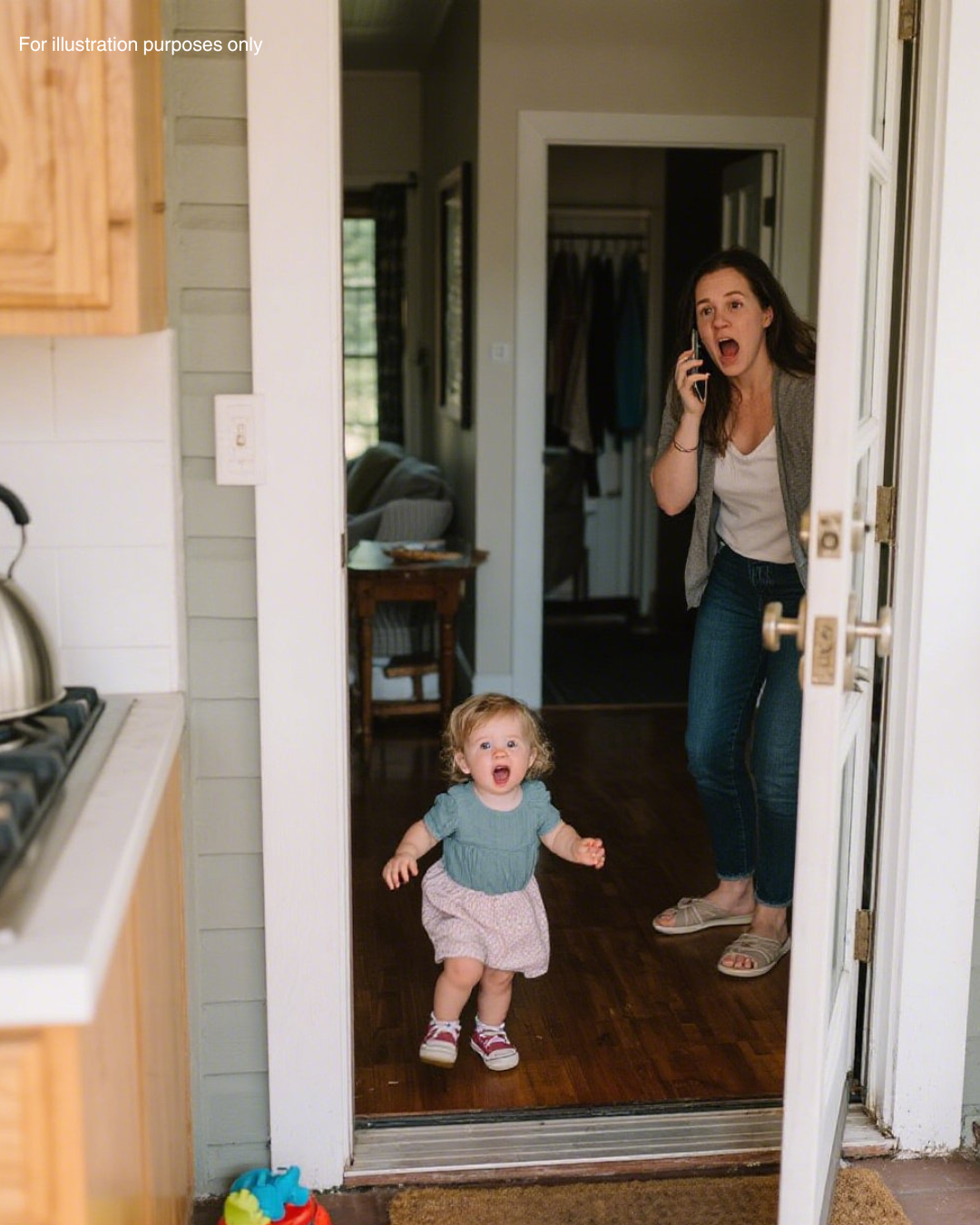
Days passed, and Mila was as happy and bubbly as ever, but I kept my distance from Carol. I continued to wonder about her, about her strange behavior and that unsettling feeling in my chest.
Then came the twist—a few weeks later, I found out Carol wasn’t just a neighbor. She wasn’t even a newcomer to the town. She had been an employee at the local daycare center, and she had been let go quietly, under mysterious circumstances, just before moving into the neighborhood.
The story unfolded quickly after that. Carol had been reported for inappropriate behavior by several parents, though nothing concrete had been proven. Still, the daycare had decided it was best to part ways. And as I pieced it all together, the pieces clicked into place. My instinct had been right. It wasn’t just a friendly neighborly gesture. It was something more—something darker.
The lesson here was clear: trust your gut. Your instincts will guide you through the most unsettling situations, even when logic and reason aren’t enough. I’d learned that no matter how well someone hides their true self, the truth will always find a way to surface.
And that’s exactly what happened. Because sometimes, when you trust yourself and stand firm, you uncover the things you might never have known—things that could ultimately protect your most precious people.
If you’ve ever had that nagging feeling about someone or something, trust it. It might just be saving you from something you didn’t see coming. And remember, the truth has a way of coming out—one way or another.
Please share this story if it resonates with you, and let others know that trusting yourself is one of the most important things you can do to keep your loved ones safe.



